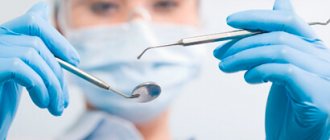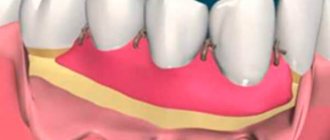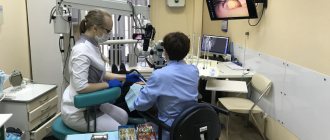Dentistry is a branch of medicine that is rapidly developing. At the moment, doctors not only treat and remove teeth, but also perform a variety of operations. Let's say they can do whitening to make your smile beautiful. They also restore teeth and save them from removal. For this reason, the number of specializations in dentistry is rapidly increasing, and doctors offer different dentists - specialization
There are a large number of specialized specialists among dentists. All of them carry out various procedures aimed at improving the health of the oral cavity. In order to understand who to contact in a given situation, it is recommended to understand what types of dentists there are. The dental profession includes the following specializations:
- Dentist-therapist
- Dentist-orthodontist
- Dentist-periodontist
- Orthopedic dentist
- Dental surgeon
- Dental hygienist
- Implantologist
- Maxillofacial surgeon
- Pediatric dentist
Dentist-therapist
The main field of activity of this specialist is the prevention and treatment of caries, eliminating its complications. It is the therapist that a person turns to on his first visit to the clinic. The specialist will conduct an examination and decide which treatment method can be used in a particular situation.
A dental therapist can install fillings in cavities affected by caries. He can also treat gums and inflammatory processes affecting the oral cavity. The therapist can diagnose a specific pathology and, if necessary, refer the patient to another specialist.
Who is a dentist, what categories of doctors does this concept include?
Who is a dentist? A specialist with secondary medical education who has been studying the profession for 3 years. This is a dentist (practitioner) specializing in simple cases of dental treatment and prosthetics.
The dentist's responsibilities include:
- therapy for advanced gum disease,
- treatment of simple caries,
- correction of simple jaw injuries,
- cleaning teeth from plaque,
- removal of dental units in the absence of periodontal complications,
- identification of serious pathologies and referral for examination to an experienced specialist.
Each specialist has a certain category - an indicator of the level of his knowledge and skills in the field of dental treatment. It depends on the length of service and changes after completing advanced training courses. Regulatory documents provide for 3 types of qualifications:
- Second. Assigned to a specialist with more than 3 years of experience after passing certification.
- First. Issued with 5–7 years of work experience. Requires increasing the level of knowledge in your field and mastering related specialties.
- Highest. Awarded with more than 7-10 years of experience. To obtain it, you need to undergo additional theoretical and practical training.
Dentist-orthodontist
People turn to him if they have problems with their bite or if their teeth have grown unevenly. The specialist eliminates bite defects and also aligns incisors, canines and molars.
If necessary, the orthodontist will make an impression of the jaw to use for making braces or aligners. The doctor will install one of these structures and explain how to care for it. While wearing braces, a person will need to consult with an orthodontist.
Prospects for the profession
The dentist profession is in demand and prestigious. Earnings are quite high, so the very opportunity to receive that kind of money is already a good prospect. In the future, you can develop and get the position of chief physician, become the owner of your own clinic or a private school of dentistry.
If you still have even the slightest doubt that the dentist profession is right for you, then we strongly recommend taking a career guidance test from Profguide . It costs mere pennies, and at the same time allows you to avoid mistakes that can go in the wrong direction and cripple your entire life. Find out more >>
Orthopedic dentist
The doctor performs dental prosthetics and restores the integrity of the dentition. You will need to visit him if a person decides to install prostheses or similar products. Typically, an orthopedist is visited if a tooth is lost or if it will soon have to be removed.
It is advisable to contact your dentist on time. The sooner you go to an orthopedist after tooth extraction, the better and easier he can do the work. The specialist installs dentures or selects other methods to improve chewing function.
Who is this profession suitable for?
This profession is suitable for people with well-developed coordination of movements, in particular fine motor skills of the hands. Good long-term memory and 100% vision are important. The slightest inaccuracy and the patient may lose a tooth or experience severe pain.
Demand
This profession is in very high demand.
Dental surgeon
He performs outpatient surgeries. Typically, a dental therapist refers patients to him if they need to have a tooth removed. The surgeon can also perform more complex tasks.
For example, a doctor performs frenuloplasty and operates on the root area of the teeth. If necessary, he can open abscesses and implant implants so that prosthetics can be installed in the future. The surgeon treats the trigeminal nerve as well as the jaw joints.
Periodontist
The teeth in the oral cavity are surrounded by soft tissue. They are in a rather vulnerable position and can suffer from various diseases. Periodontists are specialists who primarily deal with this problem, as well as the condition of the mucous membrane. In particular, such doctors, when tartar or other deposits appear above or below the gum, remove these tumors. When treating, periodontists often use so-called applications, applying medications directly to the area affected by the disease.
Kravets Olga Yurievna
Dentist, periodontist
More details
Orlova Elena Lvovna
dentist, periodontist
More details
Pediatric dentist
This specialist treats teeth for children, that is, patients under 17 years of age. He knows the specifics of the formation of the dentofacial apparatus. Takes into account the specifics of its development at different ages. Can notice deviations in a timely manner and take action.
Often parents do not treat caries on baby teeth because they wait until they fall out. This is the wrong decision. If the baby tooth is severely damaged, then the molar may also suffer.
Pediatric dentists know how to communicate with children and know how to persuade them to have an examination. Doctors can install fillings or onlays that prevent premature tooth decay.
It can be concluded that there are different specializations among dentists. The choice of a doctor depends on what problem the person is facing. If in doubt, you can first contact a dental therapist, and then he will refer you to a specialist.
Story
The history of the profession goes back a long way. The first mention of dental diseases appeared in the writings of Hippocrates. Moreover, he proposed eliminating them with the help of a hot iron. In those days, many people suffered from toothache, and the mortality rate from ordinary gumboil was quite high. Then knowledge about teeth and their care begins to develop rapidly.
In the East, in 500 AD, the first toothbrushes appeared. Forceps for removing diseased teeth appeared in the 4th century AD. Ancient civilizations suffered quite a lot from toothaches, so powerful drugs appeared to relieve them: arsenic, opium, etc. Already in these times, people realized that it was possible not only to remove a diseased tooth, but also to treat it, eliminating only the damaged area. So in 659 the first fillings appeared. Dentistry was developing rapidly in Europe.
This branch of knowledge came to Russia during the reign of Peter the Great. It was he who officially introduced the profession of dentist. From now on, the rapid development of dentistry begins in our state. In 1881, the first educational institution that trained future dentists appeared in St. Petersburg. Behind him, similar institutions are opening throughout the state.
Modern dentistry is a high-tech science that is constantly improving methods of treatment and prevention of oral diseases. Even the loss of a tooth is no longer a problem, because there are prosthetics, extensions and many other procedures aimed at creating the ideal “Hollywood” smile for every person.
Salary and place of work
As mentioned earlier, the profession is in demand and profitable. Therefore, dentists have a wide choice of places to work:
- public and private clinics;
- dental offices;
- sanatoriums and children's institutions.
Factors that affect wages are length of service, qualifications and region.
Salaries in the specialty range from 30,000 to 100,000 rubles, and in large cities you can earn much more. As practice shows, in private clinics the income is much different compared to public clinics. On average, it is 45,000 rubles.
Job Responsibilities
Even at the institute, immediately after admission, the student is prepared for future work and clearly delineates what will become his vocation.
Job responsibilities of a dentist include:
- carrying out diagnostics and providing all types of dental services to the patient;
- treatment of teeth, oral cavity and maxillofacial area;
- preparation of dental and orthopedic instruments and their correct use for their intended purpose, adhering to safety precautions;
- collection of biomaterial for analysis;
- carrying out prevention, diagnosis and treatment of all types of caries;
- correct removal, prosthetics and installation of fillings;
- registration of medical documentation established by law;
- compliance with job instructions.
These are mandatory items that require strict implementation.
Implantologist
Implantology is a narrow specialization of dental surgery. An implantologist restores missing teeth in the mouth by implanting artificial roots (implants) into the jaw bones. Problems solved by an implantologist:
- absence of one or more teeth in a row;
- complete edentia;
- atrophy of the jaw bone.
The implantologist works in close collaboration with the orthopedist, since after implantation the patient is sent to the orthopedic office for prosthetics.
Principles of training
If you decide to become a dentist, then you need to understand that this profession is very responsible. Therefore, it is necessary to obtain a medical education.
Those who are interested in dentistry are wondering: how long to study to become a dentist and what is needed for this. To enter a university, you must:
- complete 11 grades in a secondary school;
- pass the appropriate exams in biology, chemistry and Russian.
It is necessary to understand whether a person is ready for this profession. To obtain a specialty in this field, you need good study and a specific goal, as well as the ability to find an approach to even the most picky and harmful patients.
Resume sample
To find a job faster, you need a resume that can be sent to several companies at once. You need to know how to compose it correctly.
The resume must include:
- Full Name;
- Date of Birth;
- contact details: phone, email;
- citizenship;
- experience;
- basic and additional education;
- professional skills;
- knowledge of languages;
- personal qualities.
The resume should be simple and understandable; there is no need to write or invent a lot, because then in practice all the qualities and abilities of the specialist will be assessed.
Advantages and disadvantages
As in any profession, it is not the subject that matters, how much dentists earn, but the positive and negative nuances.
The positive aspects of working as a dentist include:
- qualifications are in demand in all countries of the world;
- high profit payment;
- normal working hours;
- Private practice is possible when you have a lot of experience.
There are also negative indicators that should not be forgotten. The negative aspects include:
- greater responsibility for the patient;
- high cost of training;
- possible stressful situations at work;
- competition;
- expensive equipment and tools;
- the need to constantly improve skills;
- working with different people.
Dentistry is a kind of art that has always been considered a prestigious profession. Therefore, every year students enter universities for this specialty in order to learn and then work and receive high wages.











